User Privacy and Ads Personalization: Is the Balance Possible?

Positive customer experience is inherently connected with personalization, be it about an offline client or a website visitor. Being personal towards particularly an Internet user involves a range of details — for example, convenient navigation adapted for a certain device or browser. Showing relevant ads also positively impacts the online experience — and, what is more, boosts the overall digital marketing efforts of advertisers.
To find the most personalized approach to a user, brands, ad networks, and media buyers need access to user data. Thus, personalization always implies the collection and storage of user information — and this is where the challenge begins.
This challenge can be worded like ‘How to respect users’ privacy and their sensitive information and still remain personal to them?’. Privacy standards are becoming higher and stricter worldwide, and the latest tendencies seem a kind of threat to smooth data collection and personalization based on this data.
In short, the trends are slowly but steadily directing a situation where marketers can receive much less amount of data about a user. And the big question is — ‘Will this become a problem?’
Looking ahead, we at AdTech Holding believe it will not. Striving to explain this take, we asked Alex Tomaili, the Chief Technology Officer, to share his experience, predictions, and thoughts on this topic.
Privacy Tendencies and How They Impact the Industry
Although most modern users agree to take certain risks if it makes their online experience more personalized, the basic standards of data collection and storage is still changing towards new restrictions.
Alex: One of the possible reasons for that is the general development of the Internet space. Initially, tracking users wasn’t meant for marketing purposes: instead, it was mainly required for optimizing websites to make them user-friendly across browsers and devices. As it became evident that data collection and storage can aim many other goals, including malicious ones sometimes, protection awareness started rapidly rising. Besides, the line between privacy and personalization is not that precise— so hiding as much user information as possible seems the most secure solution.
Overall, all the latest privacy trends are about making personalization efforts harder. Let’s mention two practices that might be especially challenging for businesses related to digital marketing and particularly programmatic advertising.
Refusing Third-Party cookies
Google’s announcement of blocking third-party cookies is not breaking news anymore. Still, it remains a challenge for AdTech and MarTech businesses, as Google stays the biggest and so very profitable source of desktop and mobile traffic.
Although some browsers, for example, Safari, have already prohibited third-party cookies long ago, it seems a much bigger issue to lose this legit and convenient way of tracking in the most popular browser Chrome.
For those not in the know: Third-party cookies are cookies collected by a website, not related to the exact domain you browse. This solution allows tracking users across websites, and so predicting their behavior and interests. In the AdTech industry, using third-party cookies is legit if a user browser allows it.
The challenge: Of course, without third-party cookies, it might be harder to track users across domains and understand what website types they prefer. In other words, it means no access to a user’s browser history.
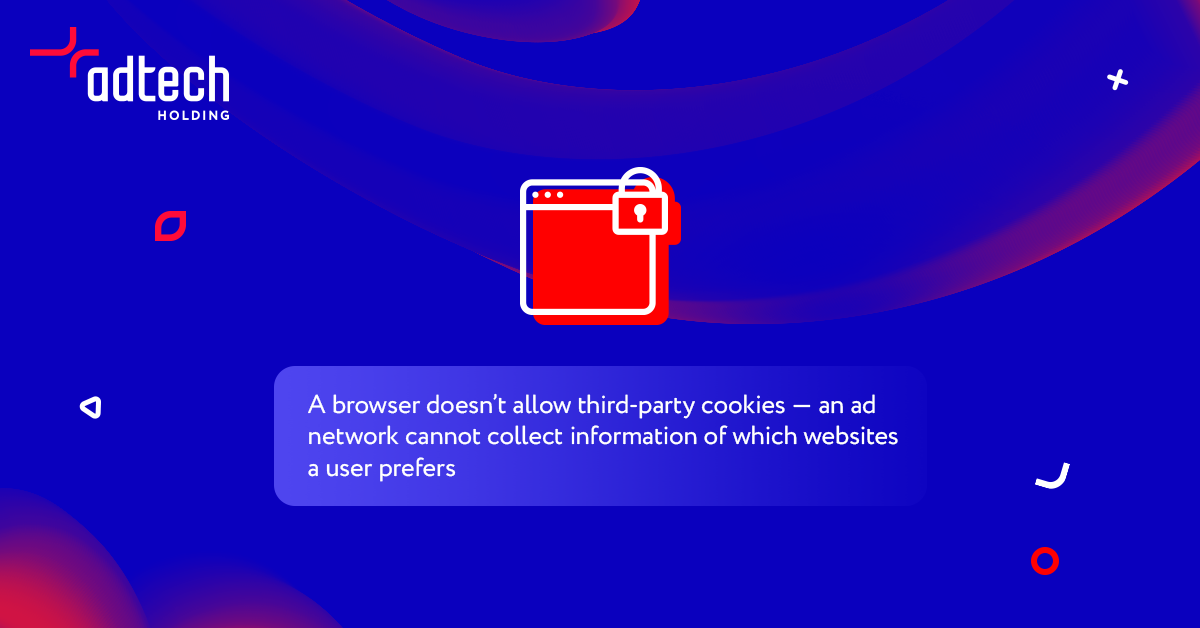
User Agent Freeze
Another measure recently taken by the Chrome development community is user agent reduction.
To start, what is the user agent? In simple words, it is a short description of your basic device characteristics: your browser and its build, your operating system and its version, your device type (mobile or PC), and the model of this device. This description helps to get some information about a user: for example, it can even give a hint of the average income — by the price of the phone model.
User Agent Reduction, or Freeze, is also a way to hide a part of user data and make their path less personal. Now Chrome shares less information about a device, showing just a little piece of data like this:
- Mozilla/5.0 (Windows NT 10.0; Win64; x64)
Alex: Imagine that people from a single office visit the same website. All of them have the same IP, and most of them use the same browser language and version. Pretty obviously, you need more data to detect a particular person from this office — for example, a smartphone model information has a much higher level of personalization.
However, it’s still possible to get the ‘frozen’ user agent data. Using a fully legit API request, a website can receive user agent information it lacks. It is also possible to inform users about such a request and make this process totally transparent.
The challenge: Although ‘reduction’ doesn’t mean ‘ban,’ and the full user agent information is still available, it is now a two-step process. The website’s API sends a request to a browser, and the browser reveals the information — and on each step, it’s possible to lose a part of the traffic. What is more, these API requests might be limited in the future — so work with user agents is becoming less smooth than it was before.
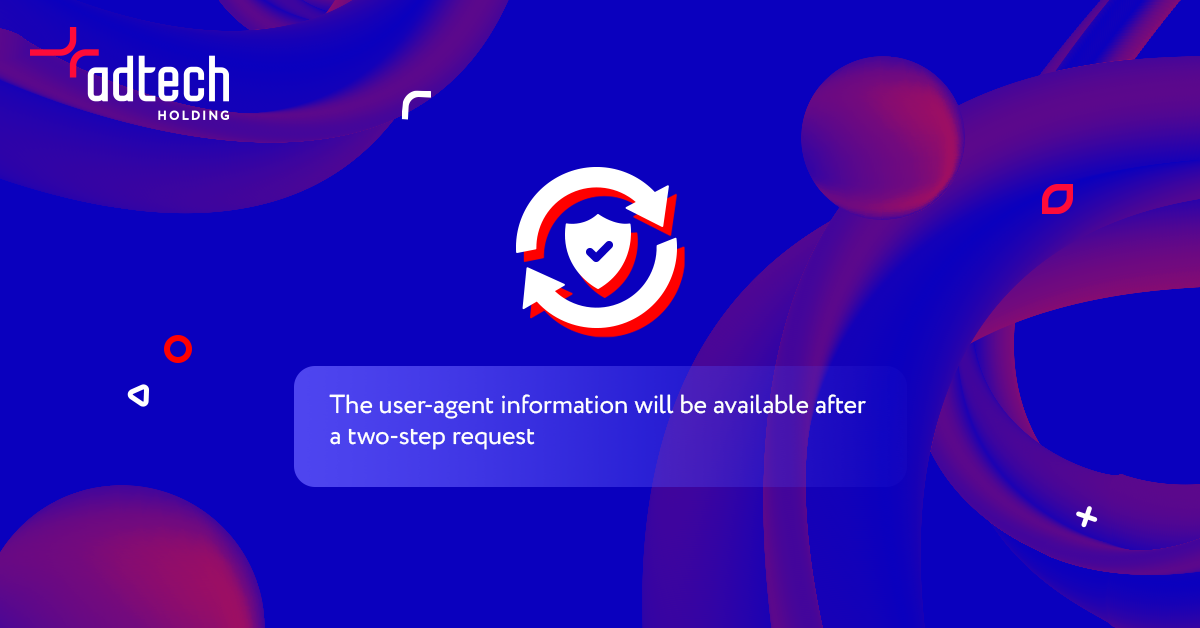
Why Is It Possible to Keep a User Private and Still Be Personal to Them?
Of course, these latest tendencies can’t be called unexpected, sudden, or dramatic. However, they still impact many workflows. Speaking precisely about digital marketing and programmatic ads, lowering the personalization level might seem a problem for accurate targeting and creating high-conversion campaigns.
However, Alex believes it is not as disturbing as it may seem at first sight: the balance between personalization and privacy can be found easily enough with the right approach.
Alex: It is mainly about how you put the question. In digital marketing, we have two sides: an advertiser who needs to show ads to users who are likely to convert and users who don’t want their privacy to be abused. So, if we determine our goal as showing the most relevant ad for every particular user, the issue is evident: it’s hard to do it without a great deal of user data. Current tendencies are unlikely to allow such a level of user personalization. However, if we paraphrase the question and consider how to provide every advertiser with the most relevant users instead, it turns out that the problem is not that severe anymore.
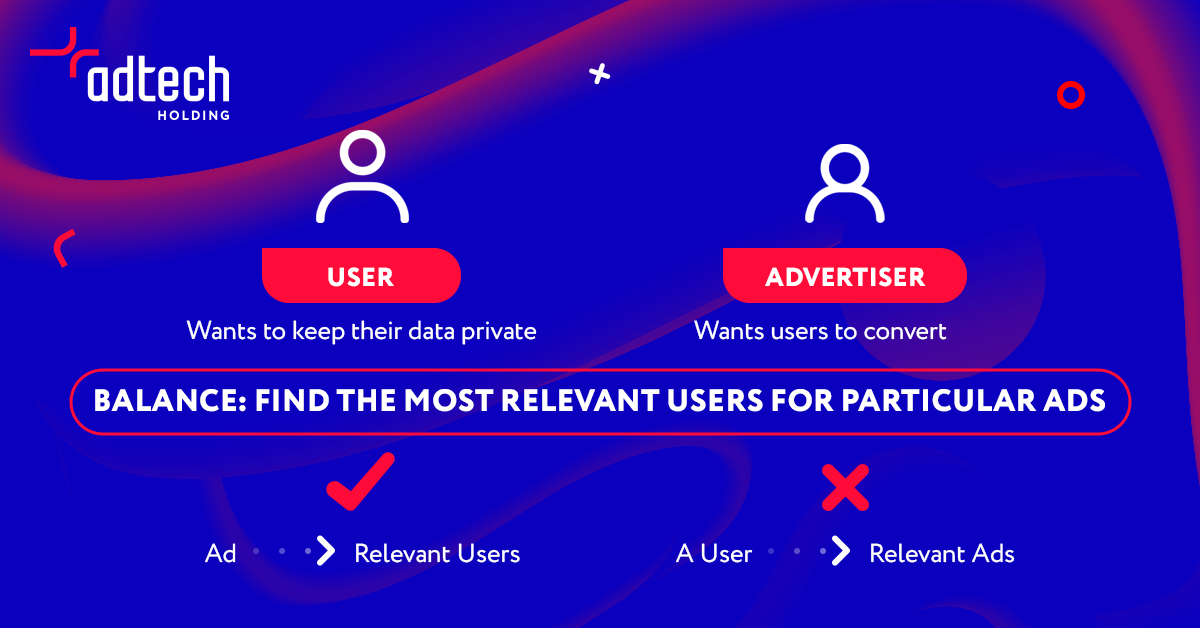
So how is the balance kept? To show it vividly, let’s do it on the example of PropellerAds, the multisource ad network that works using AdTech technologies.
In-House Solutions are Always Reliable
The main reason why refusing third-party cookies and other personalization ways is not a big concern for PropellerAds is that it has never relied on them first.
Instead, PropellerAds gets the most out of the user information that is always available: IP, browser language, platform, OS, and other technical parameters. This data is enough to create a browser user ID and track statistics within the network. In simple words, this information allows PropellerAds to see how a user interacts with its ads and create in-house statistics.
These statistics give an opportunity to make precise enough conclusions on what ads will be the most relevant for a particular user ID. It doesn’t include anything beyond the websites and ads within the PropellerAds network — so tracking a user path on the other portals is not available without third-party cookies.
Pretty evidently, this approach protects the network from the upcoming third-party cookie ban, ensures a stable workflow, and keeps user privacy at the highest possible level.
Alex: Thanks to this tracking approach, we won’t suffer even if third-party cookies become totally unavailable. We always use only legit tracking methods, so if cookies become banned in Chrome like they are in Safari today — we will never break any policies. And it is not only a question of respecting a user! If a website contains any illegal tracking scripts, it will definitely provoke negative reactions from browsers and antiviruses. For example, an alert of suspicious tracking might be triggered in Google Chrome — and this implies a loss of huge amounts of traffic. With our in-house methods of tracking users, we will never be forced to embed any doubtful solutions supposed to replace third-party cookies.
What is more, the PropellerAds ecosystem is protected by its policy. It means that all tracking is done across clean websites — without any adult or illegal content. So, there is no chance that we might have access to some sensitive data a user would especially want to hide.
User Audiences as an Alternative to Third-Party Cookies
Another way of creating personalization within an ad network is to build user audiences by interests, for example, dating, iGaming, etc. Such audiences are available thanks to user tracking across the network: PropellerAds can follow which of its websites are the most interesting to a particular visitor.
Besides, it’s possible to form audiences via surveys — special ad campaigns with landing pages or pre-landers containing a range of questions. For example, a survey can be added to a dating offer landing page: it suggests a user indicate their age, gender, and dating preferences to find the best match. These surveys are always accompanied by all the relevant consent from the user.
After a user fills out a survey, they are added to a particular audience, depending on the information they share. This way, it is possible to create an audience like ‘Women from 20 to 30 years old with an average income’.
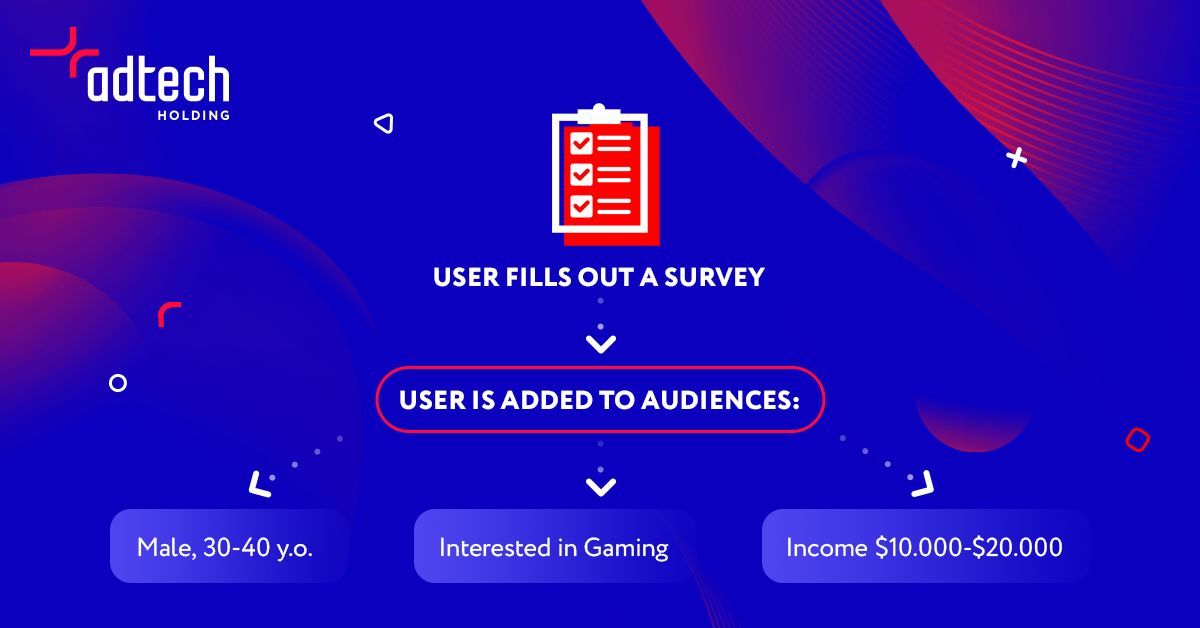
The firsthand data is valuable by design, as it comes directly from a user — and, of course, this approach gives people a choice: no pressure, anyone can refuse to fill out a survey. Of course, the collected data is never shared with any third parties.
Alex: Thanks to empirical learning, we can predict where a user from a particular audience will convert. Still, audiences are not our main method for tracking users and personalizing ads for them. The overall workflow and ad rotation won’t suffer if a user refuses to take part in a survey.
Something About the Future
To sum up, the industry is shifting its focus to alternative tracking methods that use statistics and empirical rules and don’t depend on third-party cookies.
However, Google and related industry players are not pursuing the aim of making marketing efforts harder. They are also striving for the balance between privacy and personalization — and thus implement all the changes slowly and gradually.
What is more, Google is also working on changing its approach to programmatic advertising and fitting the needs of both advertisers and users. One of the possible solutions that we might witness in the future is interest-based advertising. Here is how it is supposed to work:
- A website owner installs a special code for programmatic auction
- A user visits this website
- A browser API detects a user and their interests
- An auction begins: advertisers start competing to show ads based on the user interests
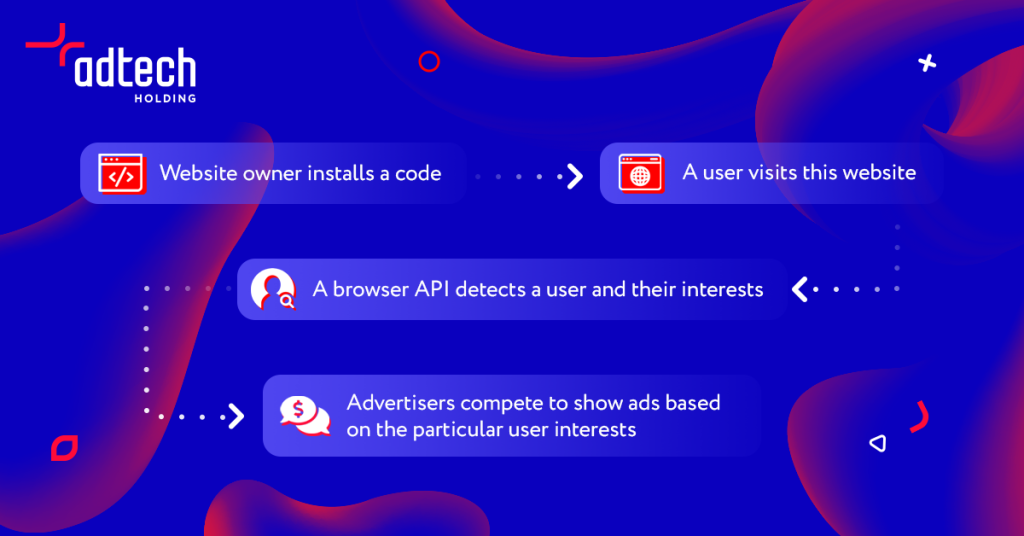
Alex: It’s unlikely that we’ll see such auctions in the nearest time — but there is a high probability that this might once become the optimal balance between user privacy and personal ad experience.
To Sum Up
Overall, enhanced security measures are not a threat to digital advertising businesses. Even fewer data amounts can still be applied in a way to create enough level of personalization — the one that will satisfy both an advertiser and a user.
What is more, many users accept and sometimes even appreciate when their data is used for personal experience. In this case, the only concern is minimizing the risk of information breaches — which is the default standard for any reliable brand.





